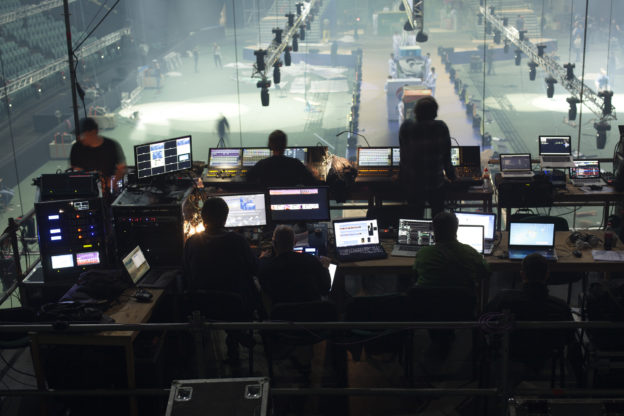Audiovisual technicians set up, maintain, repair, and tear down audiovisual equipment used to enhance events, from microphones, video recorders, and projector and screen rental, to sound and lighting rental equipment.
You may visit the official website of 'Gigpros' to record meetings and presentations with video cameras, operate spotlights, adjust amplifiers, coordinate graphics, and get technical support.
In addition, AV techs may edit, copy, and store digital media, track inventory, and order supplies. According to the Bureau of Labor Statistics, this industry should have a 13% job growth through the 2008-18 decade, which is faster than average compared to other job categories.

Education
There is no one standard. At a minimum, employers usually require a high school education or GED. Some require an associate's degree in audiovisual technology, while others insist on a bachelor's degree. Credentialing, such as a Certified Technology Specialist, is offered through InfoComm International. When selecting an audiovisual company, you may wish to request what educational level and certifications the technicians have at that organization.
Skills
According to Education-Portal.com, audiovisual technicians must be able to transport, assemble, maintain, and repair equipment used in a sales meeting or event. Knowledge of camera and light equipment rental techniques are essential, as is familiarity with editing equipment and software.
Audiovisual technicians must be creative, flexible, have strong communication skills, and be able to interact with co-workers and clients.